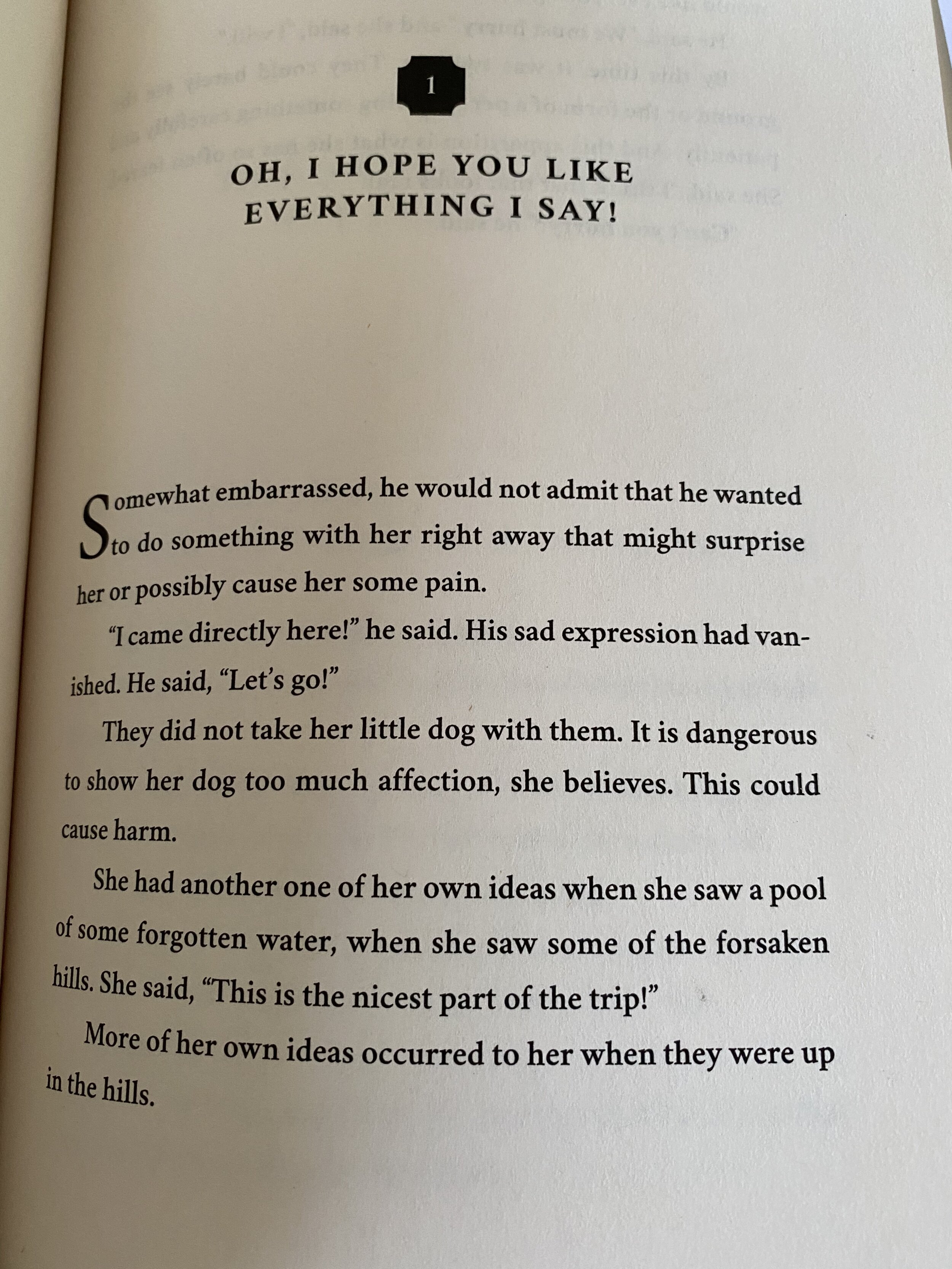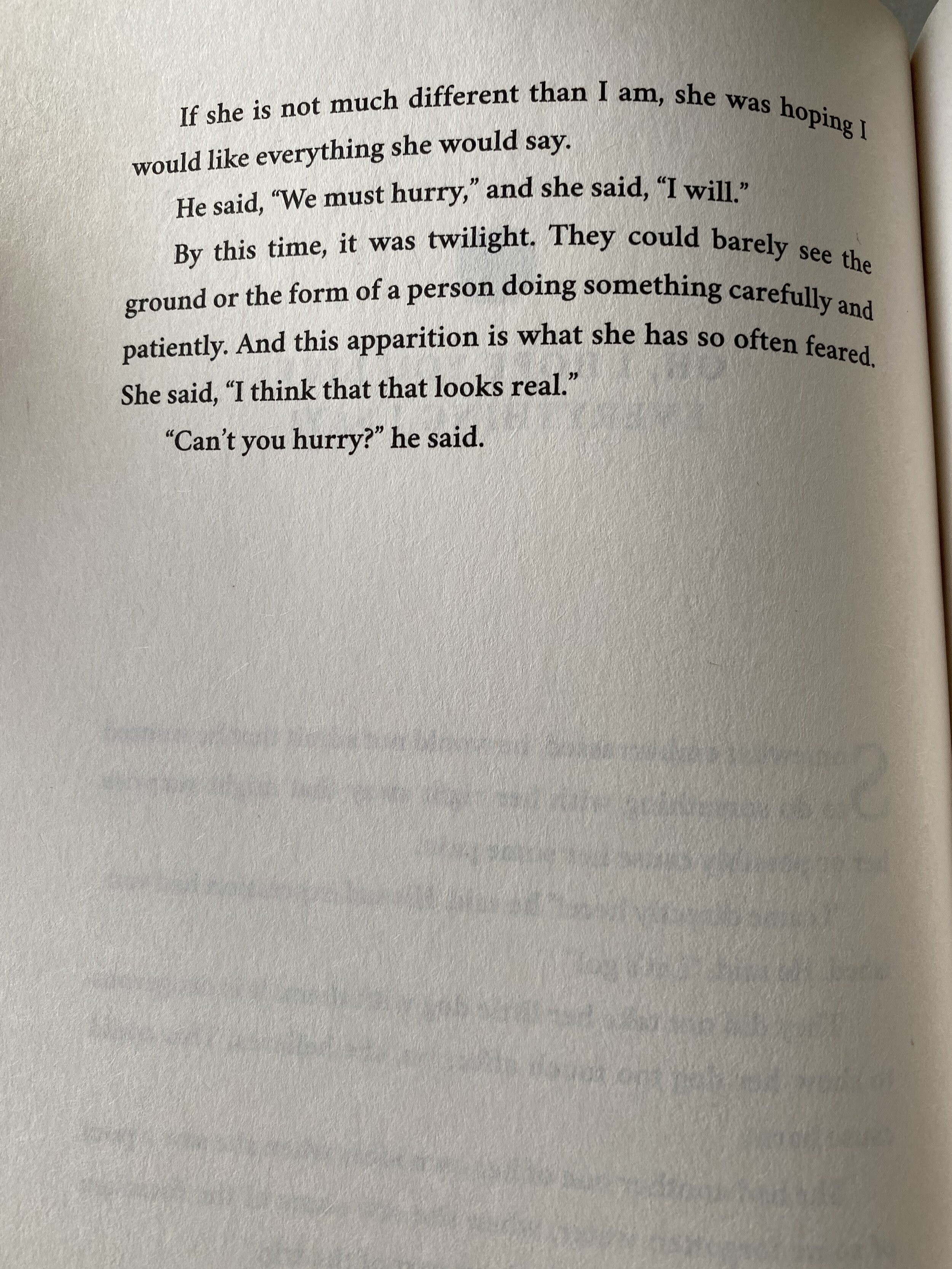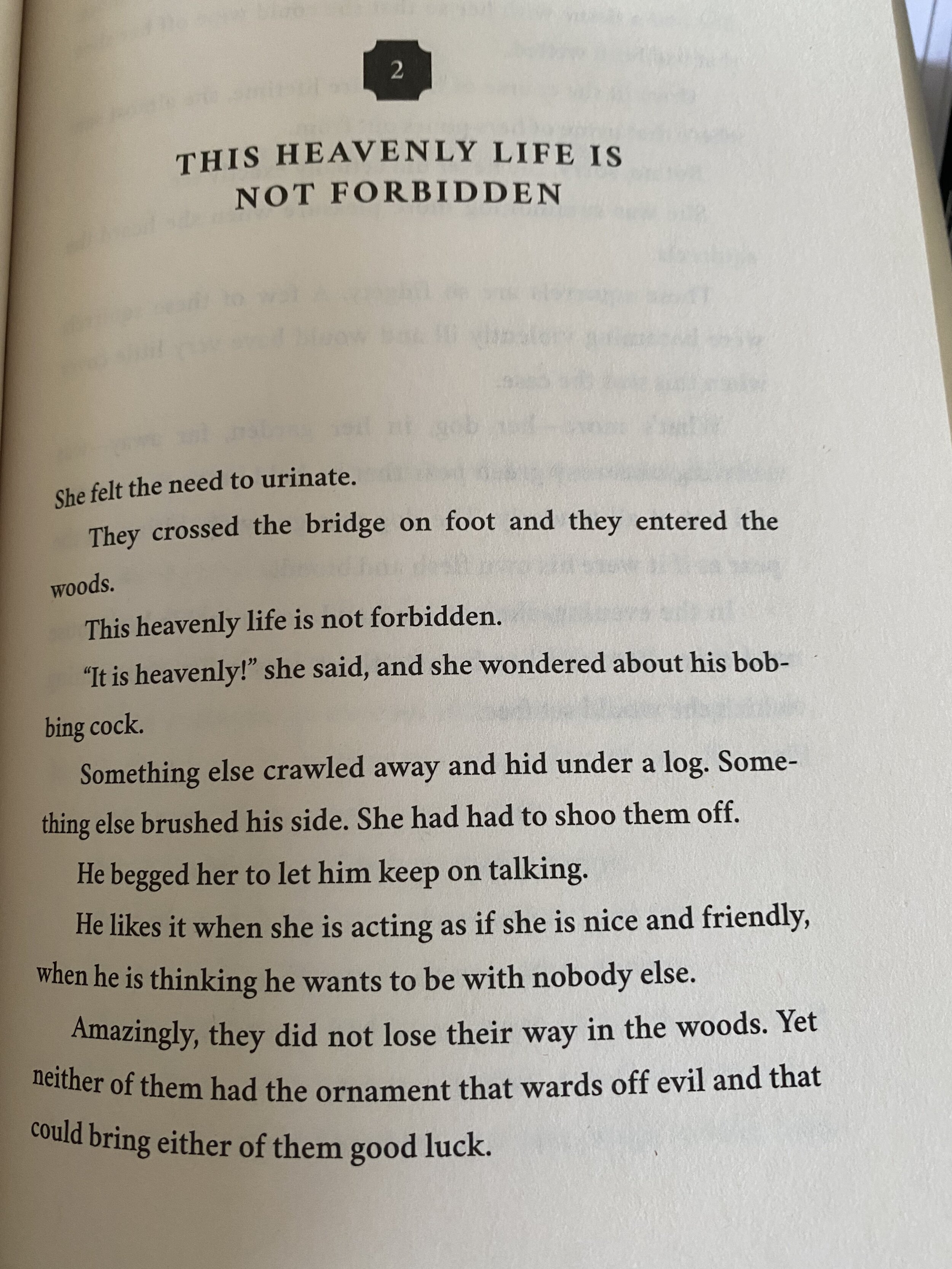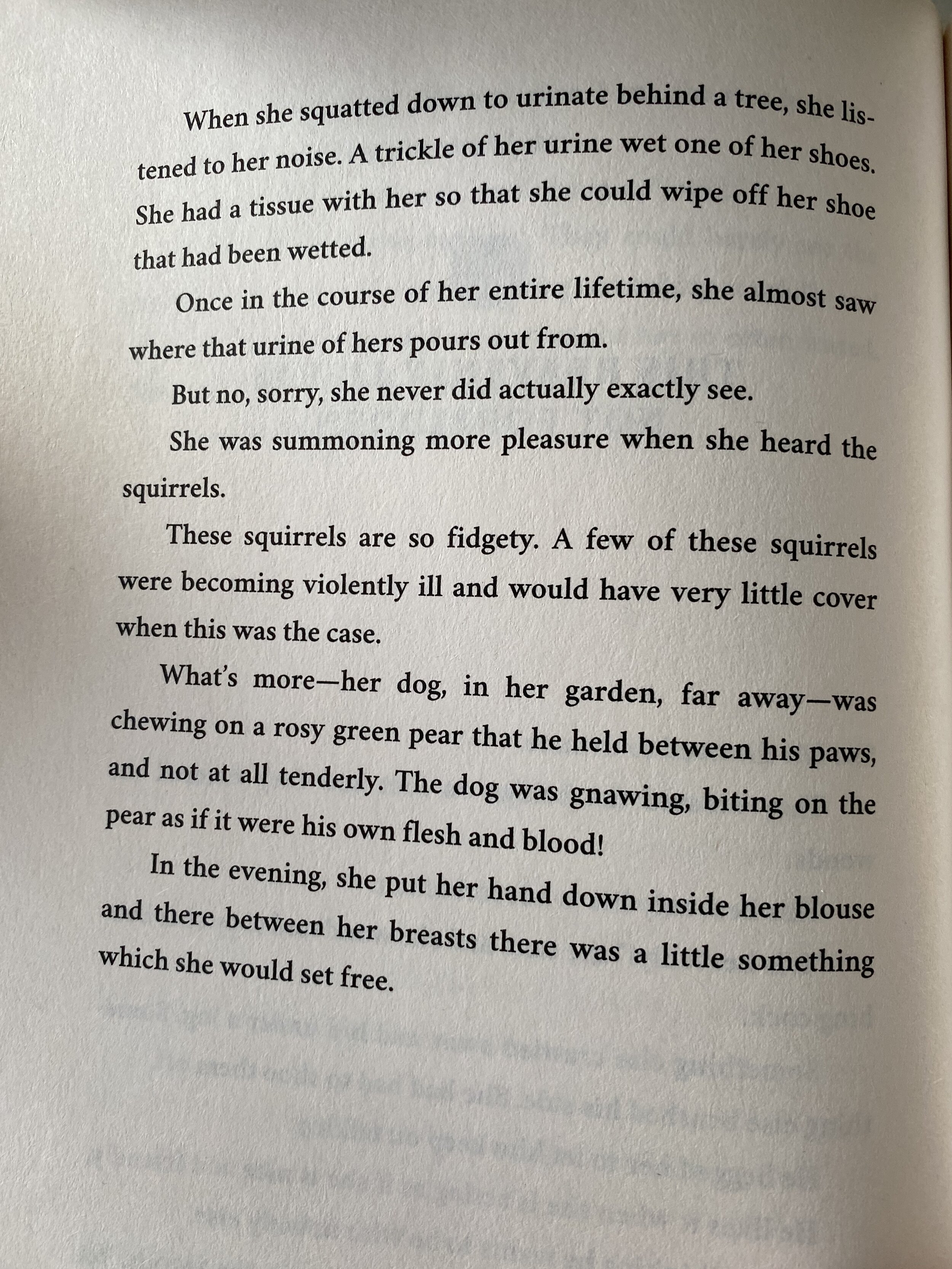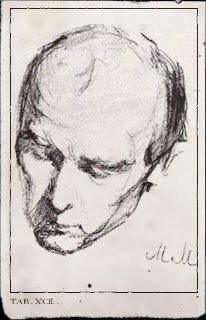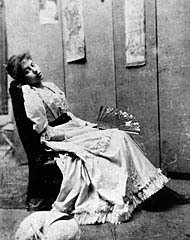1.
For every Comyns-lover, there is a coming-to-Comyns story.
Mine is recent. I lost my Barbara-Comyns-virginity last month because Richard Mirabella tweeted about hosting a zoom book club—and I will read anything to crawl into a small digital room with fellow bibliomaniacs and talk about a book they love, in this case, Our Spoons Came From Woolworths.
2.
Barbara Comyns was British. She grew up in large house, among a large family with dwindling economic means and status. Her father died in her teens, and the family house was sold off. While attending art school in London, Comyns married fellow artist John Pemberton. Four years later, in 1934, the two exhibited their work together. Between exhibits and marriage, Comyns birthed two children, Julian and Caroline. The marriage ended in 1935.
At some point in the late 1930’s, Comyns started a relationship with Arthur Price, a “black marketeer,” and she took her two kids to live with Price at various places in London, where Comyns made money by modeling, flipping apartments, breeding poodles, renovating pianos, dealing in furniture and cars, and drawing for ads.
When World War II began, money grew tighter and the threat of bombing increased. Comyns’ relationship with Price ended, at which point she took the kids to the countryside and “became a cook in a Hertfordshire country house, where she wrote a series of vignettes about her childhood.” This is when Comyns wrote Sisters by a River, which was initially released in serialized form.
More than a decade ago, Emily Gould (who introduces the New York Review Books edition) described Comyns’ first novel, Sisters by a River, as “a barely fictionalized account of her strange childhood” created to entertain and amuse her own kids while living in London and “working as a cook on a country estate to escape the Blitz.” In her introduction to Virago’s 1984 edition, Ursula Holden emphatically asserts: “The events in the book are true.” So we know Comyns’ early work emerged from lived experience: we take it she used her own life as a muse. At least, at the beginning.
3.
Her second novel, Our Spoons Came From Woolworths, was published around the same time as her first, and it continues the mining of personal life as fictional muse. In this, Comyns turns from her childhood to adulthood, carrying the reader through a series of ordinary remarkable things, including childbirth, child loss, marital drudgery, peak misogyny, and pets (from newts to foxes).
The book begins in the voice of the narrator, Sophia: “I told Helen my story and she went home and cried.”
From here, Sophia narrates her life at twenty-one in 1930’s London, after marrying a fellow painter named Charles. They are very poor. Charles’ family doesn’t support his marriage to an artist, a woman without pedigree, status, money, or extended family. Sophia narrates this rejection with fatalism-tinged humor: things are the way they are because this is how things go and here we are going along with them. Obviously, the novel explores the author’s relationship to John Pemberton, and I derived cream-cakes of pleasure imagining his initial response upon reading it.
While Charles paints and works on his art, Sophia struggles to make money for rent, heating, and food. She supports his art career and puts her own on hold. Again, this is what one does, and therefore one must do it. They go to various places which inspire Charles to paint, and the narrator’s voice wanders between her own experience and that which is appropriate, as determined by Charles reaction’s. Here they are at the fair:
Fair music always had excited me and given me a kind of lump in my throat, but Charles did not get this feeling, so he said I was being even more stupid than usual, and if I felt like that I had better go home.
Sophia poses nude for artists and sculptors and eventually gives birth to a baby—which horrifies Charles—and then struggles to feed and nurture the baby alongside her pet newt while also wondering what she is doing, and suspecting that her husband is cheating.
The childbirth scene is disorienting; Sophia has no context or background knowledge for what is happening. The hospital seems like a stadium of continuous humiliations where women go to be delivered of their autonomy and humanity. Sophia describes the healthy birth as follows:
I suddenly felt so interested in what was happening. The baby was really coming now and there it was between my legs. I could feel it moving and there was a great tugging in my tummy where it was still attached to me.
........ I couldn't help crying when I heard it was a boy, because I knew there wasn't much chance of Charles liking it, now it was a boy. He particularly disliked little boys. I longed to see the baby, but they said I couldn't yet. It had stopped crying and I was worried in case it was dead. So I cried about that, too.
The humor comes from the narrator’s deadpan delivery of absurdities, often voiced by men or figures of power and authority. Comyns lets them make fools of themselves—she doesn’t try to explain or excuse or label their hypocrisies. Instead, she lays on the table near spoons, napkins, and gloves. Again, a scene from the hospital:
Charles said he had borrowed some money to send telegrams to his relations saying we had a boy of six oz. I told him it was 6 pounds not ounces, but he said a few pounds either way wouldn't make any difference. But Charles' telegrams caused a huge sensation, and his family was most disappointed when in due course they discovered we had quite a normal baby.
Eventually, after Sandro’s birth, Sophia slips into a nonsexual flirtatious friendship with an elderly art critic named Peregrine (and what a fantastic name for this man one imagines repeatedly as a sort of sad loafing penguin, an exhausting succubus)!
When Peregrine isn’t complaining about his estranged wife, he is “a charming companion” and Sophia begins to enjoy his attention. At this point, she gets pregnant again:
I went home and told Charles and he looked quite terrified and said he wouldn't give up his painting for beastly babies and ran out of the house. I felt all frightened, as if I'd done something wicked. I did wish it was the men sometimes that had babies. I would be awfully kind to Charles if he had one, although I would hate to see him looking all fat.
He didn't come back till late in the night, but I was still awake. He said he was sorry he had been so angry with me, but I must promise to get rid of this extra child. So I cried a bit and said I would, as long as I didn't have to do anything too alarming.
Sophia learns Peregrine is going to be away for business, and she expresses relief: “I was pleased he was going to be away now I felt so unhappy, because I knew men hate women when they are unhappy.”
To keep the men in her life happy, Sophia pays for an illegal abortion. She describes the experience and the accompanying emotions without elucidation: simply lays them side by side as facts.
I don't feel much like writing about the actual operation. It was horrible and did not work at all as it should. I couldn't go to hospital, because we would have all gone to prison if I had. Even the doctor did his best to help me recover, although he was scared stiff to come near me when he saw it had all gone wrong, but eventually I became better. But my mind didn't recover at all. I felt all discussed it and that I had been cheated from having my baby. Now it had gone I wanted it more than ever; I felt I had been weak. I should have left Charles and had the baby somewhere. If I'd just become a tramp with Sandro surely someone would have taken us in….
One is struck by how few options Sophia has—to become a “tramp” or to have an abortion—what a strange choice for a mammal to be forced to make. Thank goodness no male-identifying mammals are being forced to make these choices on a daily basis.
Fortunately, Pegerine returns from his business trip and Sophia begins a sexual affair with him. I say “fortunately” because good fortune and bad fortune seem indiscernible in this story where all fortune is there, grinding forward, without time to consider its intent or duration.
4.
Throughout this novel, Comyns uses narrative voice to destabilize knowledge and convention. She does this discreetly, humorously, painfully, continuously pressing Sophia’s voice against the world’s received wisdoms, and making authority and status seem ridiculous.
The problem of pregnancy, and the challenges with avoiding it, are clearly demarcated as a women’s labor, a sub-heading of knowledge inaccessible to the narrator. Notice the juxtaposition of physical pain with supernaturalism and a slight absurdity in this scene where Sophia is trying to tell her husband labor has begun:
Then I saw my mother's ghost sitting in the rocking chair, and it was rocking in quite a normal way, so I did wake Charles and said, "Look there is my mother's ghost! She must have come to tell me it's time to go to the nursing home. I do feel a bit queer." Then Charles saw her, too, but he didn't like her much. He jumped out of bed and put the light on, and she wasn't in the chair anymore, but it still rocked. We got dressed because I was quite sure she wanted me to go to the nursing home, but seeing a ghost had made Charles a bit grumpy.
In this section, Sophia manages to express that no one existed to usher her into motherhood, no living person cared enough to know when she should go to the hospital, and so the ghost of the mother appeared. We don’t question the verity of this ghost because, I think, we sense a true need for it. As readers, we are relieved for the rocking chair, relieved for anything that gets Charles off his navel-gazing ass where Sophia’s existence is concerned. Sometimes it takes a mother’s ghost to make a man listen.
And this is just the beginning of the sad times. For after the abortion, Sophia gets pregnant again. She gives birth to a little girl named Fanny. Then, she leaves Charles—who informs her that she needs to move on—and decides to go live with Peregrine. After discovering that her lover—and the father of her baby girl, Fanny—is, in fact, married to the woman whose money and home-labor sustains him, Sophia finds herself on the streets of London with a baby, homeless. She catches scarlet fever and almost dies. Fanny, the baby, does die. The string of losses sharpens but does not relent. There is more. There is more. You should read it.







